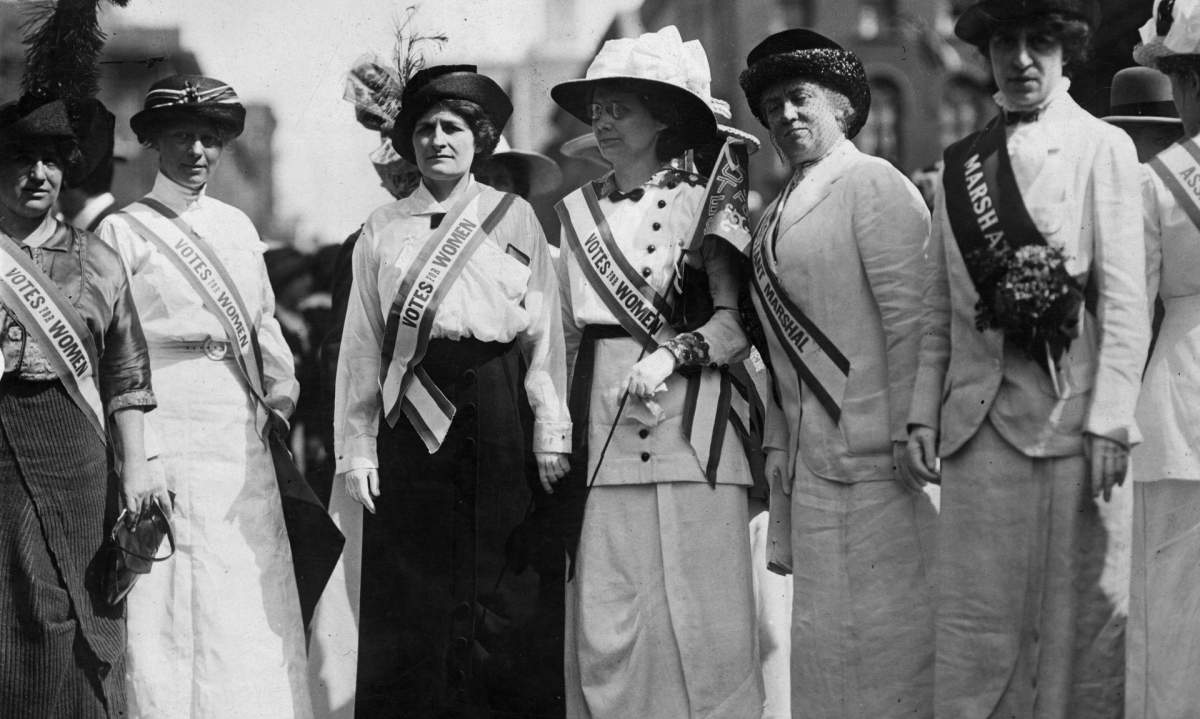On this day 100 years ago, most — but not all — Canadian women won the federal right to vote.

Several provinces had granted white women the right to vote provincially already, but the right to vote federally was granted on May 24, 1918, even in cases where women remained unable to vote provincially.
READ MORE: Women’s Suffrage in Canada
That right was granted to women over the age of 21 — so long as they were not Japanese, Chinese or South Asian living in B.C., or Chinese living in Alberta.
Both men and women from those backgrounds did not win the right to vote until 1948, while Indigenous people were forced to wait until 1960.
A lot has changed in 100 years: women from all backgrounds can and do run for the House of Commons or seek at seat in the Senate (those milestones happened in 1919 and 1929, respectively).
Still, women hold just 94 of the 338 seats in the House of Commons, or 28 per cent.
In the Senate, 41 of the 105 members are female.
WATCH BELOW: Hillary Clinton says more women needed in politics to ‘get sexism out’

There remains a long way to go before women have equal representation politically and across political stripes, elected officials tweeted and shared their hopes throughout the day that women will continue to keep securing wins toward full social and political equality.
Neither Conservative Leader Andrew Scheer nor NDP Leader Jagmeet Singh issued statements recognizing the centenary.

Get breaking National news
However, Global News reached out to female MPs from all three main parties asking how they hope to see women’s rights evolve over the next century.
COMMENTARY: Tearing down the barriers for women entering politics
Rachael Harder, status of women critic for the Conservatives, said that while a lot has changed since women won the right to vote, there is still more to do before women will have achieved full equality.
“In 100 years from now, I hope that women in Canada will be proud of who they are as strong, powerful and free individuals who are capable of accomplishing great things — by pursuing political office, or whatever field they choose. Women have gained significant ground in the last 100 years, but we still have a ways to go,” Harder wrote in response.
“In 100 years from now, I hope we’ll enjoy equal opportunity to use our time, talent, and education in whatever way we desire, be it political office, the lab, the classroom, the home, the military, or the business world. I hope women will exercise their right to say ‘yes’ to the things they’re most passionate about, and ‘no’ to the things they’re not interested in. I hope women will use their voices to continue making positive change.”
Employment Minister Patty Hajdu stressed the need to get women into fields where they are underrepresented.
Change, she said, needs to happen sooner rather than later.
“We can’t achieve our full economic potential as a country when we leave half our talent on the table. So it is my hope that the next 100 years will see us breaking down those barriers that continue to hold women back in their careers,” she said in an email.
“That means getting more women into senior leadership roles, closing the gender wage gap, getting more young women to pursue careers in fields they’re typically underrepresented in like STEM and skilled trades, and a culture change that puts an end to workplace harassment. These are things I am deeply committed to, and I hope to see these shifts in a matter of years, rather than a century from now.”
WATCH BELOW: Will Oprah’s Golden Globes speech help the fight for equality and women in politics?

But Sheila Malcolmson, NDP status of women critic, said the pace of change now is too slow and called on the government to do more.
“Progress towards equality was made because women and allies spoke up, marched, and fought together for the rights of future generations. If nothing changes, it’ll take 90 years to achieve gender parity in Parliament. This is unacceptable and it doesn’t have to be that way!”she said in a statement.
“I hope that 100 years from now we won’t still be calling on the federal government to end widespread discrimination against women in Canada. Women need more than feminist rhetoric, they need action now! We shouldn’t wait another 100 years for equal pay and for strong social programs like universal childcare, which are fundamental to women’s equality.”
SOUND OFF: What milestones would you like to see women achieve over the next century?
Note: We may use your response in this or other stories. While we may contact you to follow up we won’t publish your contact info.
- ‘Something just went off’: Canadians in Middle East describe ‘surreal’ Iran missile strikes
- Carney and India’s Modi strike new energy partnership
- As Iran conflict spirals, there are 85K Canadians in Middle East, GAC says
- Danielle Smith says Iran war underscores need for new Alberta pipeline to the coast









Comments
Want to discuss? Please read our Commenting Policy first.